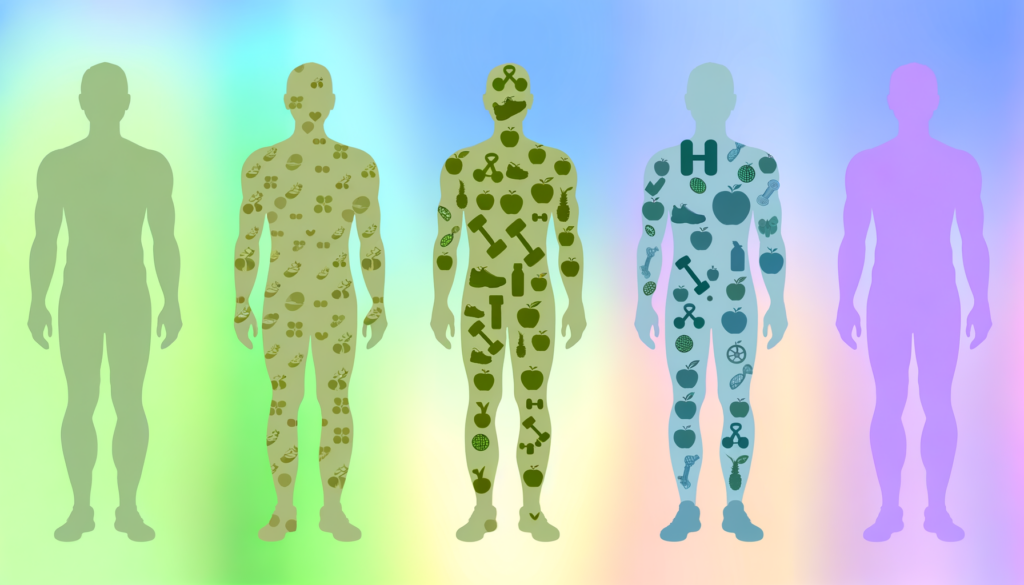Understanding the Impact of Calorie Tracking on Polycystic Kidney Disease
Managing polycystic kidney disease (PKD), particularly autosomal dominant polycystic kidney disease (ADPKD), involves a multifaceted approach that includes dietary interventions, lifestyle modifications, and careful monitoring of calorie intake. Here, we delve into the role of calorie tracking in the management of PKD, highlighting its significance, the types of dietary interventions that are effective, and real-world examples of their implementation.
The Link Between Calorie Intake and PKD Progression
Research has consistently shown that obesity and overweight conditions are strong predictors of rapid PKD progression. Studies have indicated that higher body mass index (BMI) is associated with increased risk for incident and advanced chronic kidney disease (CKD), including ADPKD.
The metabolic dysregulation associated with obesity plays a crucial role in the progression of ADPKD. The disease is characterized by the growth of renal cysts, which is influenced by metabolic alterations such as dependence on aerobic glycolysis and defective fatty acid oxidation (FAO). These metabolic abnormalities promote cyst growth at the expense of healthy tissue function.
Dietary Interventions: Caloric Restriction, Intermittent Fasting, and Ketogenic Diets
Several dietary regimens have been explored for their potential to slow the progression of ADPKD:
### Caloric Restriction
Daily caloric restriction (DCR) involves reducing daily caloric intake, typically by 30% or more. Studies have shown that DCR can significantly slow kidney cyst growth and maintain kidney function in both animal models and human patients. For instance, a study where patients reduced their calories by approximately 34% based on their resting metabolic rate showed better weight loss and adherence compared to intermittent fasting.
### Intermittent Fasting
Intermittent fasting (IMF) involves restricting calories to a certain percentage of overall needs for specific days of the week. While IMF has shown promise, it generally results in less weight loss and lower adherence compared to DCR. However, it remains a viable option for those who find it more manageable.
### Ketogenic Diets
Ketogenic diets, which induce ketosis, have also been shown to slow kidney cyst growth. These diets, characterized by high fat and low carbohydrate intake, can alter nutrient signaling and substrate availability in the cystic kidney, providing systemic metabolic benefits.
Implementing Calorie Tracking in ADPKD Management
Effective management of ADPKD through calorie tracking involves several key steps:
#### Monitoring Caloric Intake
Using tools such as the Calorie Calculator Cloud, patients can accurately track their daily caloric intake. This is crucial for adhering to the prescribed dietary regimen, whether it is DCR, IMF, or a ketogenic diet.
#### Structured Dietary Programs
Structured programs, such as those led by registered dietitians, can provide the necessary guidance and support. For example, a study funded by the Colorado Clinical and Translational Sciences Institute and the National Institutes of Health involved participants receiving instruction from dietitians and using smartphone apps and wireless scales to track their diet and weight.
#### Regular Health Monitoring
Regular monitoring of health metrics, including kidney volumes, creatinine levels, and blood pressure, is essential. This helps in assessing the effectiveness of the dietary interventions and making necessary adjustments. For instance, a participant in a study reported a decline in creatinine levels and a decrease in resting heart rate after starting the calorie-restricted diet.
Real-World Examples and Case Studies
Several studies and case studies illustrate the feasibility and benefits of calorie tracking in managing ADPKD:
### Clinical Trials
A trial conducted at UCHealth University of Colorado Hospital involved patients with ADPKD who were either on a daily caloric restriction or intermittent fasting regimen. The study found that both regimens were feasible and resulted in significant weight loss, with DCR showing better adherence and weight loss outcomes.
### Patient Experiences
Patients like Johnston-Clark, who participated in a multisite study, have reported positive outcomes. Despite initial challenges, she found the structured approach to diet and calorie tracking helpful, leading to improved health metrics and a sense of control over her condition.
Fluid Balance and Chronic Disease Management
In addition to calorie tracking, maintaining proper fluid balance is crucial for kidney health. Here are some key considerations:
#### Hydration
Adequate hydration is essential for kidney function. However, patients with ADPKD need to balance their fluid intake carefully to avoid overloading the kidneys. Tools like hydration trackers can be useful in monitoring fluid intake.
#### Electrolyte Management
Electrolyte balance is also critical. Patients should be mindful of their sodium, potassium, and other electrolyte levels, as imbalances can exacerbate kidney problems.
#### Lifestyle Modifications
Lifestyle modifications, including regular physical activity and stress management, are integral to overall kidney health. Physical activity interventions, such as those incorporated into weight loss programs, can help in reducing visceral adiposity and slowing cyst growth.
Conclusion and Future Directions
Calorie tracking is a vital component of managing polycystic kidney disease, particularly ADPKD. By implementing dietary interventions such as caloric restriction, intermittent fasting, and ketogenic diets, patients can potentially slow the progression of the disease. The use of tools like the Calorie Calculator Plans can facilitate accurate calorie tracking and adherence to prescribed diets.
As research continues to uncover the mechanisms by which these dietary regimens affect ADPKD, it is clear that a comprehensive approach to nutrition and lifestyle is essential for improving the quality of life for patients with this chronic disease.
For those looking to manage their kidney health through nutrition and calorie tracking, it is important to consult with healthcare professionals, including registered dietitians and nephrologists, to develop a personalized plan. By combining the latest scientific evidence with practical tools and support, individuals can take a proactive role in their health management.








